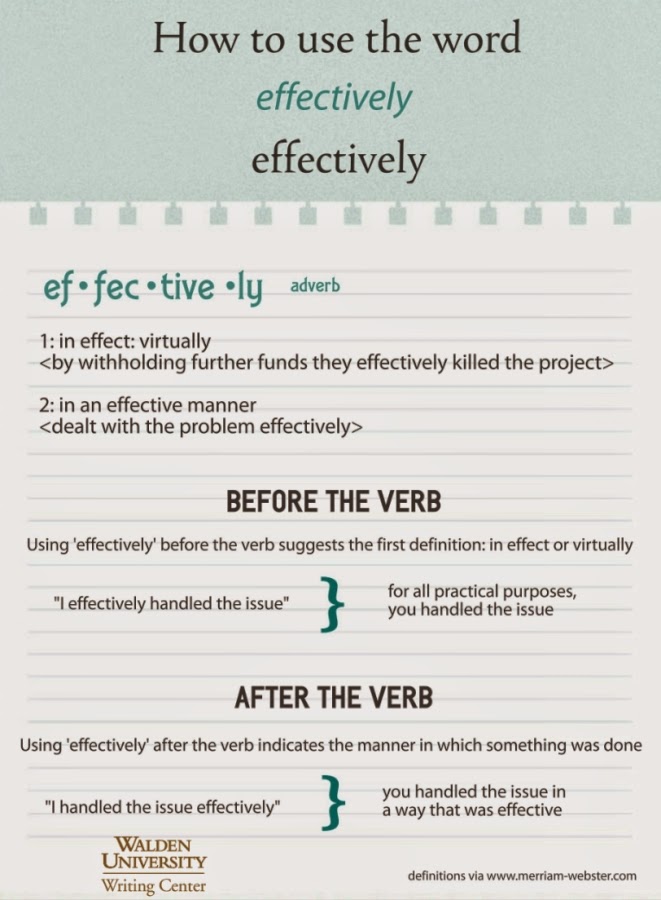In English, the position of a word in a sentence is significant.
Where a word appears in a sentence
depends on whether you are writing about time, a question, an adverb; it
depends on whether you are writing a positive sentence, a negative sentence, or
a subordinate clause.
Adverbs are problematic because they can appear before the subject of the sentence, between the subject and the verb, or after the verb. Their meaning will
generally change according to position in the sentence. So it’s not uncommon to
see adverbs misplaced in written English.
Such an adverb is effectively.
According to the Merriam-Webster online dictionary (preferred by APA and
Walden), when placed between the
subject and the verb, it means in effect or virtually <by
withholding funds they effectively
killed the project>. But when it is placed after the verb, it means in
an effective manner <dealt with the problem effectively>. Follow this URL: http://www.merriam-webster.com/dictionary/effectively
Putting an adverb in the wrong position in a sentence will likely
confuse readers. For example, you would not want to write, “by withholding
funds, they killed the project effectively,”
if you meant to say only that the project was virtually killed (“by withholding funds, they effectively killed the project”).
To say how something was done, the adverb must be used after a verb. Use this infographic below as a handy reminder:
Practice: Do a search (hint: use CTRL + F) in a piece of your writing for the word 'effectively'. Are you using it as you mean to? Share with us in the comments.
| Never miss a new post; Opt-out at any time |


I seem to have avoided this error by using the adjective form instead of the adverb. Thanks for the tip
ReplyDeleteThanks for reading and for your own tip, Alicia!
Delete